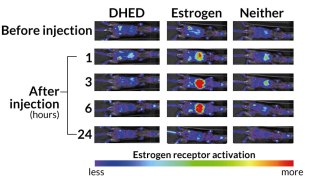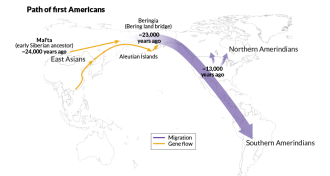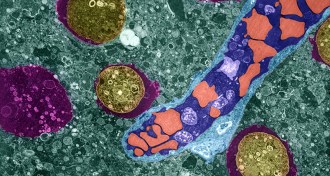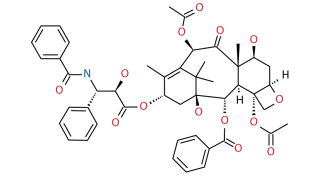News
-
 Animals
AnimalsSocial pecking order gives roosters something to crow about
Small groups of laboratory roosters keep to the rankings for orderly morning crows.
By Susan Milius -
 Space
SpaceBest cosmic ‘cradles of life’ may be elliptical in shape
Giant elliptical galaxies might harbor up to 10,000 times as many Earthlike planets than galaxies like the Milky Way.
-
 Astronomy
AstronomyKepler telescope identifies new ‘habitable zone’ planet
A new analysis of data from NASA’s Kepler mission has uncovered a planet orbiting a sunlike star that could be Earth’s “cousin.”
-
 Paleontology
PaleontologySudden heat spikes did in Ice Age’s mammoth mammals
Abrupt warming and excessive hunting by ancient humans were responsible for the disappearance of many large mammals, including woolly mammoths, during Earth’s last glacial period.
-
 Paleontology
PaleontologyMuseum fossil links snakes to lizards
Scientists have discovered the fossilized remains of the first four-legged snake. The fossil bridges the gap between snakes and lizards.
By Meghan Rosen -
 Life
LifeCells from grandma help keep fetus safe
Grandmother’s cells may watch over grandchildren in the womb.
-
 Neuroscience
NeuroscienceBoosting estrogen, only in the brain
Scientists have developed a chemical that transforms into the hormone estrogen in the brain, but not the body, of rats.
-
 Genetics
GeneticsResearch teams duel over Native American origins
Genetic link between Australia and the Amazon fuels two interpretations of Native American origins.
-
 Health & Medicine
Health & MedicineDeath by brain-eating amoeba is an inside job
Immune response to brain-eating amoeba may be the real killer.
-
 Neuroscience
NeuroscienceBreakdown of Alzheimer’s protein slows with age
It takes longer to get rid of an Alzheimer’s-associated protein with age.
-
 Climate
ClimateCarbon dating may soon lead to mismatches
Carbon released from burning fossil fuels will jeopardize the effectiveness of many carbon dating applications, new research predicts.
-
 Chemistry
ChemistryBiology may provide just the right chemistry for new drugs
Using enzymes and microbes to make new drugs may help revive the pharmaceutical industry.
By Beth Mole